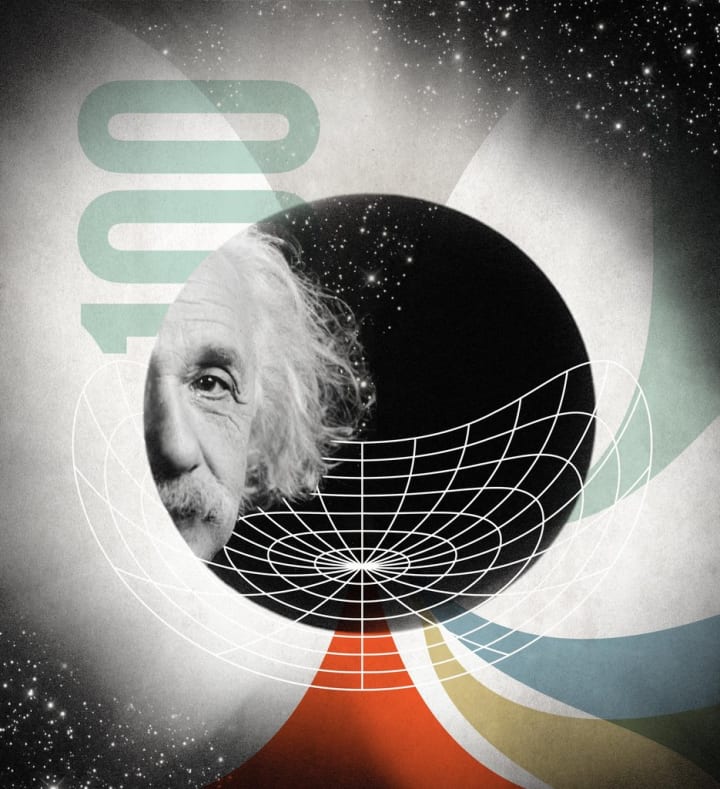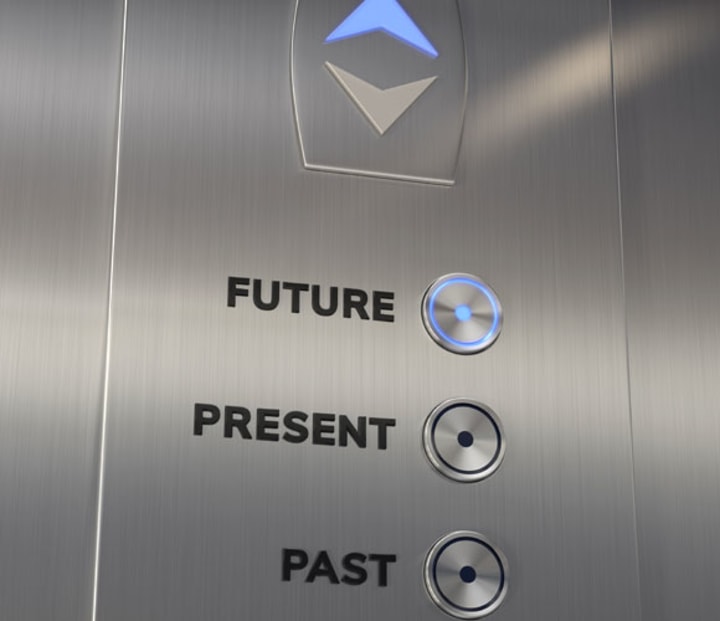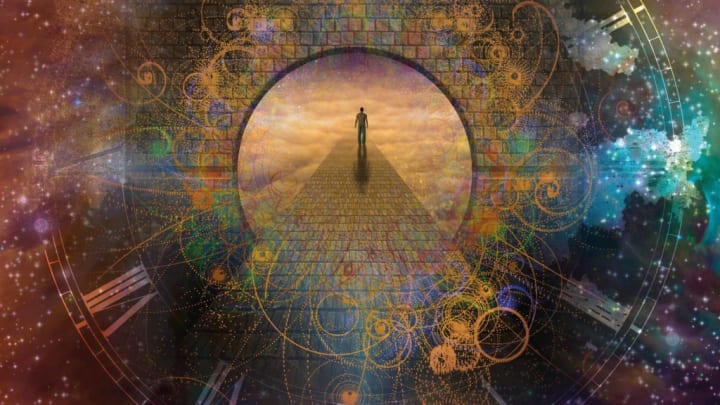Travel through time into the past or the future(Dream of every human being).
Humans obsession with time and things that they dreamed of.

I love the way that the way how we evolved from looking up in the sky and dreaming to go to the moon, and as time passes we also achieved the things that we thought that we never could, and the only things that humans that didn't have came to a conclusion are time traveling. Yes time traveling some of us think that this is inappropriate but think about the stuff that we did by that time and we regret doing them, for example, you and your dad have an argument and you ended up leaving your house and when you came back and he was found dead and that's gonna make you feel so devastated and you end up your life in a regret that's can be solved and many more so her is my way of putting up that every human dream of :
Intro
Is it possible to travel through time? Yes, and you're doing it right now, speeding into the future at an incredible rate of one second per second. Whether you're watching paint dry or wishing you had more hours to chat with a buddy from out of town, you're pretty much always going through time at the same speed.
But this isn't the kind of time travel that has enthralled innumerable science fiction writers and spawned a genre so large that Wikipedia counts over 400 films in the "Movies about Time Travel" category. Characters in films such as "Doctor Who," "Star Trek," and "Back to the Future" hop into a crazy vehicle to travel back in time or spin into the future.

Theories to prove that time travel is possible
However, science does allow for some time travel.
The theory of special relativity proposed by scientist Albert Einstein, for example, suggests that time is an illusion that shifts relative to an observer.
Time, with all its aftereffects (boredom, aging, etc.) will be experienced considerably more slowly by an observer traveling near the speed of light than by an observer at rest.
That's why, after a year in space, astronaut Scott Kelly aged slightly slower than his identical brother who remained on Earth.
Einstein developed his theory of special relativity in 1905. Along with his later expansion, the theory of general relativity, it has become one of the foundational tenets of modern physics. Special relativity describes the relationship between space and time for objects moving at constant speeds in a straight line.
The short version of the theory is deceptively simple. First, all things are measured in relation to something else — that is to say, there is no "absolute" frame of reference. Second, the speed of light is constant. It stays the same no matter what, and no matter where it's measured from. And third, nothing can go faster than the speed of light.

Pros of time traveling
From those simple tenets unfolds actual, real-life time travel. An observer traveling at high velocity will experience time at a slower rate than an observer who isn't speeding through space.
While we don't accelerate humans to near-light-speed, we do send them swinging around the planet at 17,500 mph (28,160 km/h) aboard the International Space Station. Astronaut Scott Kelly was born after his twin brother, and fellow astronaut, Mark Kelly. Scott Kelly spent 520 days in orbit, while Mark logged 54 days in space. The difference in the speed at which they experienced time over the course of their lifetimes has actually widened the age gap between the two men.
"So, where[as] I used to be just 6 minutes older, now I am 6 minutes and 5 milliseconds older," Mark Kelly said in a panel discussion on July 12, 2020, "Now I've got that over his head" and it has many more advantages respective to the person and their need, these also have their disadvantages too so let us take a peek into those
Con's of time traveling
Sometimes our ability to time travel in our minds brings us distress
This suggests that small children have an extreme form of the empathy gap we can all experience on occasion which leaves us unable to imagine that we might feel differently in the future. When I packed my suitcase on a dreary November day in London to go to Sydney where I knew temperatures were high, I still couldn’t resist packing a jumper and puffer jacket. It was impossible to imagine that I wouldn’t need them.
Of course, neither garment left my suitcase.
But sometimes our ability to time-travel in our minds brings us distress. Helen Christensen, chief scientist at the Black Dog Institute in Sydney, told the audience at the World-Changing Ideas Summit “the capacity of imagination means that sometimes people do ruminate about the future and also looking backwards people can be traumatised, reliving their experiences, which can be incredibly upsetting and can interfere with happy functioning”.

Conclusion
Time traveling is the most complicated thing that any human being dreamed of and hope that will lead the way to reality and can do the things that they ever dreamed of and make their life happier than ever been and remember "Great power comes with great responsibility" the way that humans evolved creat us a hope that anything can be possible for humans and hope for the best.
About the Creator
Srinivas Jonnallagadda
Anime, science, Movies.
Create, Explore, Expand, Conquer.





Comments
There are no comments for this story
Be the first to respond and start the conversation.